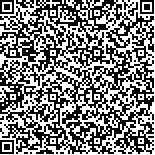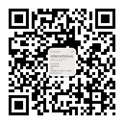| 引用本文:黄月君 郑茂春 林广裕 冯学永 谢晓丹.心理小组式辅导对本硕连读临床医学专业学生儿科实习中学习态度的影响[J].中华医学教育探索杂志,2018,17(2):191- |
| 心理小组式辅导对本硕连读临床医学专业学生儿科实习中学习态度的影响 |
| The effect of psychological group on improving the learning attitude of interns in the pediatric clin-ical practice |
| DOI: |
| 中文关键词: 心理小组 实习生 儿科 学习态度 |
| 英文关键词:Psychological group Intern Pediatric Learning attitude |
|
 |
| 基金项目: |
|
| 摘要点击次数: 1780 |
| 全文下载次数: 789 |
| 中文摘要: |
| 目的 了解心理小组式辅导对本硕连读临床医学专业学生在儿科实习中学习态度的影响。方法 以在汕头大学医学院第二附属医院儿科实习的2012级和2013级本硕连读临床医学专业学生为研究对象。在按照实习大纲进行儿科实习的基础上,采用自愿参与的方式,开展心理小组式辅导。每个心理小组由5~6名学生组成,每周进行心理小组式辅导1次,每次时间为1.5 h;共6次。根据学生是否参加心理小组分为干预组和非干预组。每名学生在进入儿科临床实习的第一周和最后一周分别填写《儿科临床实习生学习态度评价表》和《大学生人格问卷》;应用SPSS 17.0对相关数据行卡方检验与t检验。结果 干预组有33人,问卷有效回收率为100%;非干预组有40人,问卷有效回收率为85%。两组学生的心理状态在实习前及实习后差异均无统计学意义(P>0.05)。实习前,两组学生的学习态度总均分为(83.82±8.39)和(84.39±8.29),差异无统计学意义(t=-0.28,P=0.781);实习结束时,干预组的学生学习态度总均分为(88.91±7.40),高于未干预组学生的总均分(75.03±11.19),差异有统计学意义(t=-5.969,P=0.000)。结论 心理小组式辅导有助于培养医学生在儿科临床实习中对患儿及家长的同理心,从而改善自身在儿科实习的学习态度。研究结果能为心理小组式辅导在医学实习中的推广提供参考。 |
| 英文摘要: |
| Objective To assess the effect of psychological group on improving the learning attitude of interns in the pediatric clinical practice. Methods This study included 67 medical students who enrolled during 2012 to 2013 and had done the clinical pediatrics in the Second Affiliated Hospital of Shantou University Medical College. The students carried out pediatric clinical practice as requested. Based on the practice of pediatric practice, the psychological group counseling was conducted by voluntary participation. Each psychological group consisted of 5 or 6 students and performed once a week. Each time of psycholog-ical group lasted for 1.5 hours and 6 times in total. The students were divided into intervention group and non-intervention group according to whether they participated in psychological group. Each student filled in the Pediatric Clinical Internship Attitude Assessment Form and the College Student Personality Questionnaire at the first week and the last week of pediatric clinical practice. SPSS 17.0 was applied to conduct Chi square test and t test. Results There were 33 students in the intervention group and 40 students in the non-inter-vention group. The effective rate of questionnaires for intervention group and non-intervention group were 100% and 85%, respectively. The mental state of pediatric interns between two groups was not different before and after the pediatric clinical practice (P>0.05). Before pediatric clinical practice, the learning attitude score between two groups was not different [(83.82±8.39) vs. (84.39±8.29), t=-0.28, P=0.781]. After pediatric clinical practice, the learning attitude score of pediatric interns who used psychological group teaching model was better than that of pediatric interns who used traditional teaching model [(88.91±7.40) vs. (75.03±11.19), t=-5.969, P=0.000]. Conclusion Psychological group can help medical students to develop empathy toward sick children and their parents, and then improve their learning attitude in pediatric practice. The results of this study can provide a preliminary basis for the popularization of psychological group in the whole process of medical internship. |
|
查看全文 查看/发表评论 下载PDF阅读器 |
|
| 关闭 |
|
|
|
